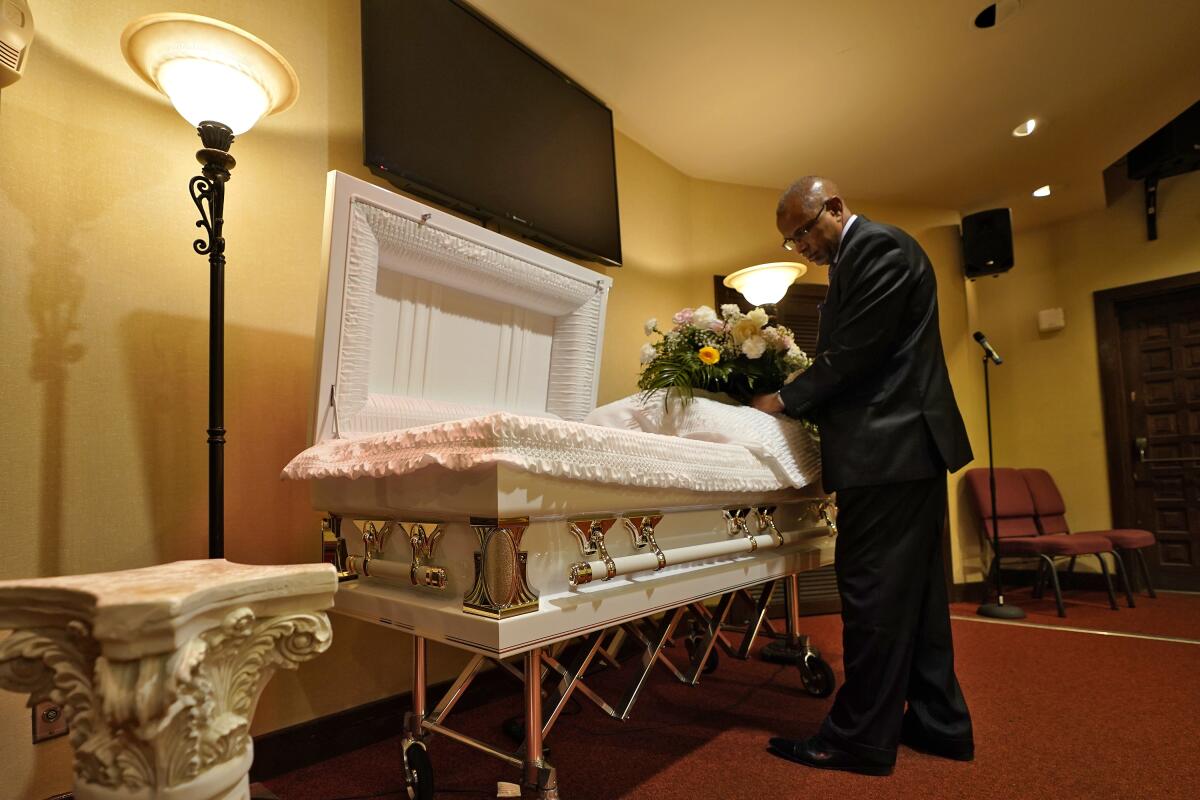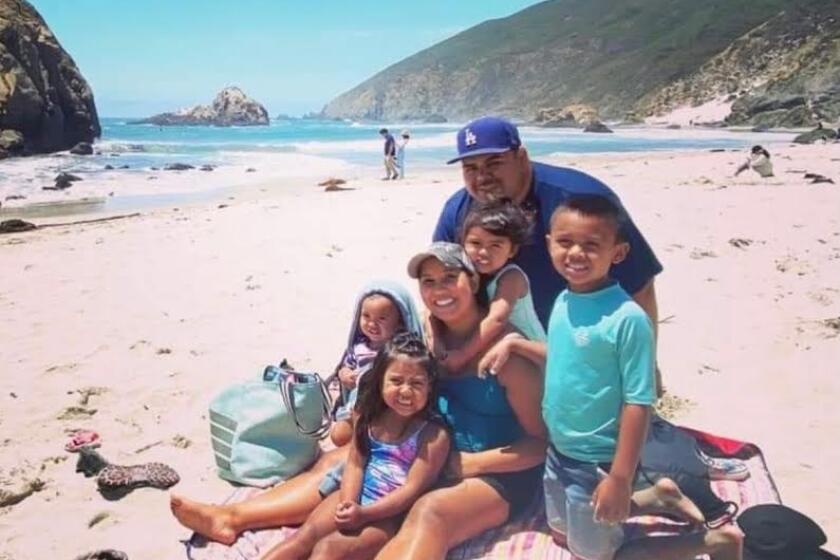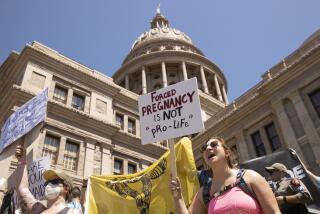More than 120,000 children in U.S. have lost their primary caregiver in the pandemic, study says

- Share via
NEW YORK — The number of U.S. children orphaned during the COVID-19 pandemic may be larger than previously estimated, and the toll has been far greater among Black and Latino Americans, a new study suggests.
More than half the children who lost a primary caregiver during the pandemic belonged to those two groups, which make up about 40% of the U.S. population, according to the study published Thursday by the medical journal Pediatrics.
The differences were far more pronounced in some states. In California, 67% of the children who lost primary caregivers were Latino. In Mississippi, 57% of the children who lost primary caregivers were Black, the study found.
“These findings really highlight those children who have been left most vulnerable by the pandemic, and where additional resources should be directed,” one of the study’s authors, Dr. Alexandra Blenkinsop of Imperial College London, said in a statement.
During 15 months of the nearly 19-month COVID-19 pandemic, more than 120,000 U.S. children lost a parent or grandparent who was a primary provider of financial support and care, the study found. Another 22,000 children experienced the death of a secondary caregiver — for example, a grandparent who provided housing but not a child’s other basic needs.
In many instances, surviving parents or other relatives remained to provide for these children. But the researchers used the term “orphanhood” in their study as they attempted to estimate how many children’s lives were upended.
The couple and their four children all contracted the coronavirus after a trip to Big Sur in July, which included a stop on the way back at an indoor water park in Orange County.
Federal statistics are not yet available on how many U.S. children went into foster care last year. Researchers estimate that COVID-19 drove a 15% increase in orphaned children.
The new study’s numbers are based on statistical modeling that used fertility rates, death statistics and household composition data to make estimates.
An earlier study by different researchers estimated that roughly 40,000 U.S. children lost a parent to COVID-19 as of February 2021.
The two studies’ findings are not contradictory, said Ashton Verdery, an author of the earlier study. Verdery and his colleagues focused on a shorter time period than the new study. Verdery’s group also focused only on deaths of parents, while the new paper also captured what happened to caregiving grandparents.
The U.S. death toll from COVID-19 eclipsed 700,000 Friday. The last 100,000 deaths occurred when vaccines were available to any American over age 12.
“It is very important to understand grandparental losses,” Verdery, a researcher at Pennsylvania State University, said in an email. “Many children live with grandparents,” a living arrangement more common among certain ethnic groups.
About 32% of all kids who lost a primary caregiver are Latino and 26% are Black. Latino and Black Americans make up much smaller percentages of the population than that. White children account for 35% of the kids who lost primary caregivers, even though more than half of the population is white.
The new study based its calculation on excess deaths, or deaths above what would be considered typical. Most of those deaths were from COVID-19, but the pandemic has also led to more deaths from other causes.
Kate Kelly, a high school junior in Lilburn, Ga., lost her 54-year-old father in January. William “Ed” Kelly had difficulty breathing, and an urgent care clinic suspected it was due to COVID-19, she said. But it turned out he had a blocked artery and died at work of a heart attack, leaving Kate, her two sisters and her mother.
In the first month after he died, friends and neighbors brought groceries, made donations and were very supportive. But after that, it seemed like everyone moved on — except Kate and her family.
“It’s been just like no help at all,” the teenager said.
More to Read
Sign up for Essential California
The most important California stories and recommendations in your inbox every morning.
You may occasionally receive promotional content from the Los Angeles Times.












